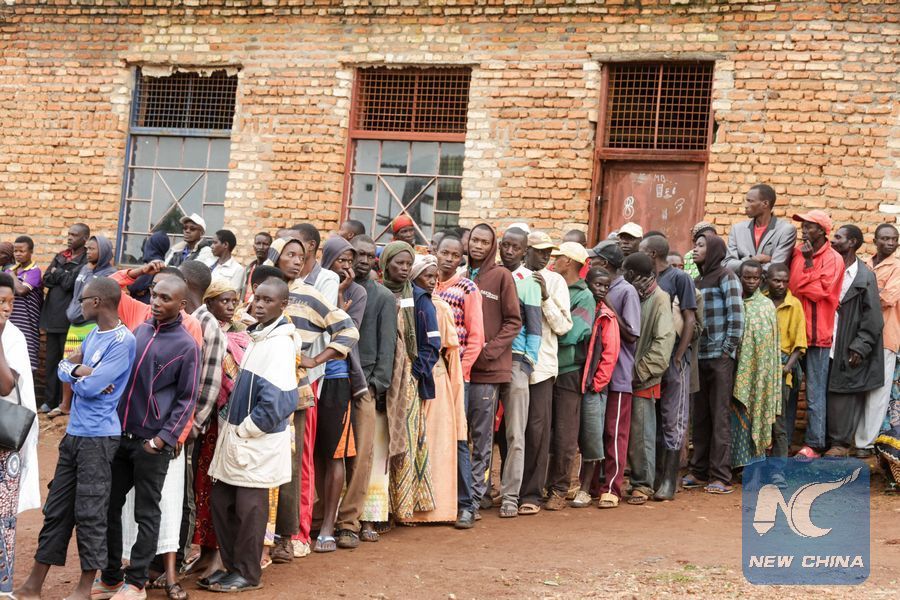
People stand in a queue to vote in a constitutional referendum in Ngozi Province, Burundi, on May 17, 2018. (Xinhua/Evrard Ngendakumana)
BUJUMBURA, May 22 (Xinhua) -- The Burundian National Independent Electoral Commission (CENI) on Monday evening said amendments to the constitution has been approved by a vote of 73.26 percent in a referendum.
Those who rejected the draft constitution accounted for 19.34 percent; invalid votes account for 4.11 percent and abstentions accounted for 3.28 percent, said CENI chairman Pierre Claver Ndayicariye while announcing provisional results of the constitutional referendum.
The turnout was 96.24 percent. Out of 4,755,215 registered voters, the number of voters reached 4,576,296, he said.
The awaited results from the diaspora, accounting for 0.27 percent of the country's total voters, will not "significantly" change the overall figures at the national level, he said.
"We are now going to submit the provisional results of the constitutional referendum to the Constitutional Court that has nine days to publish final results after endorsement of provisional results," said Ndayicariye.
The draft constitution provides for the creation of the post of a prime minister and only one vice-president, whereas the 2005 constitution provides for two vice-presidents. The prime minister is to be designated from the ruling party, while the vice-president will come from a different party.
It extends the presidential term from the five years provided in the 2005 constitution to seven years and allows the president to serve two consecutive terms.
Incumbent President Pierre Nkurunziza was elected the president of Burundi by parliament in 2005, and was re-elected in a universal suffrage in 2010 and in 2015.
The landlocked country plunged into a crisis in April 2015 when Nkurunziza decided to run for a third term, which he won in July 2015. His candidature, opposed by the opposition and civil society groups, resulted in a wave of protests, violence and even a failed coup in May 2015.
Main opposition groups had been saying that Nkurunziza's third term bid was a violation of the constitution and the Arusha Agreement that ended a civil war that lasted over over a decade, but the Constitutional Court issued a ruling saying that Nkurunziza's 2005-2010 term should not be considered as a term because he was elected by the parliament and not directly by citizens.

